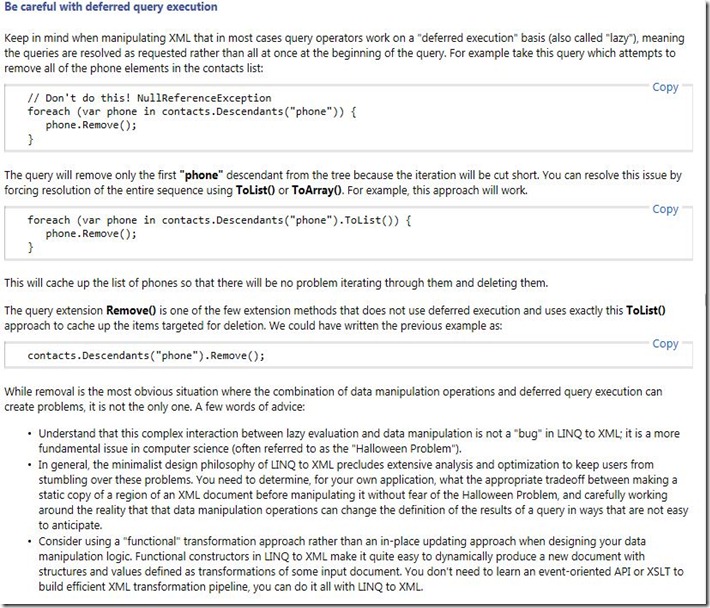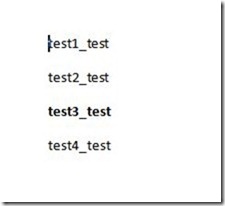Today a F# program did not work as expected. This is a small example I created:
let xml ="<a><b>1</b><b>2</b></a>" let doc = XDocument.Parse(xml) let getXElements_b (doc:XDocument) = let els = doc.Root.Elements(XName.Get("b")) els
//test let result1 = doc |> getXElements_b |> Seq.toList //val result1 : XElement list = [<b>1</b>; <b>2</b>] //the expected result
let proces (el:XElement) = XElement(XName.Get("c")) |> el.ReplaceWith doc |> getXElements_b |> Seq.iter proces let result2 = doc.ToString();; //val result2 : string = "<a> // <c /> // <b>2</b> //</a>"This is not the expected result. I expected:
val result2 : string = "<a> <c /> <c /> </a>"
I can fix it by changing the getXElements_b function:
let getXElements_b (doc:XDocument) = let els = doc.Root.Elements(XName.Get("b")) |> Seq.toList els
With this adjustment everything works fine. It seems that I have to force the the computation.
This is a problem in C# too.
private void GetXml() { var xml = "<a><b>1</b><b>2</b></a>"; var doc = XDocument.Parse(xml); var els = doc.Root.Elements(XName.Get("b")); foreach (var el in els) { el.ReplaceWith(new XElement(XName.Get("c"))); } txtResult.Text = doc.ToString(); }
produces:
<a>
<c />
<b>2</b>
</a>
When I step with the debuger through the code the foreach is only one time triggered.
With support of Google I found the following document:
http://msdn.microsoft.com/en-us/library/bb308960.aspx
You can learn something new everyday.
Interesting links:
The "Halloween Problem" for XML APIs:
http://blogs.msdn.com/b/mikechampion/archive/2006/07/20/672208.aspx
Query Composition using Functional Programming Techniques in C# 3.0:
http://blogs.msdn.com/b/ericwhite/archive/2006/10/04/fp-tutorial.aspx






